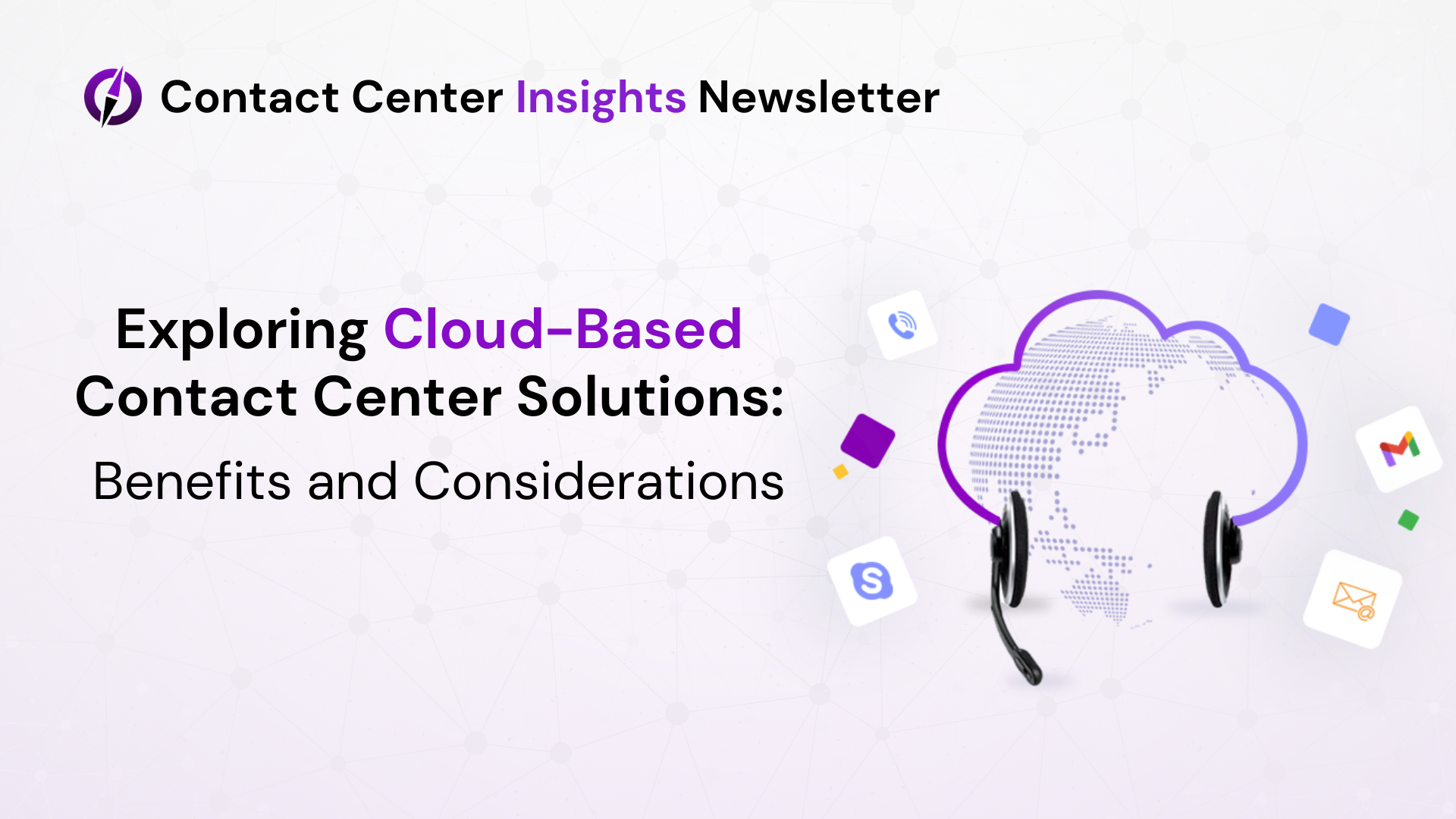Today, we’re delving into a transformative innovation reshaping contact center operations: Cloud-Based Solutions. In an era where flexibility, scalability, and efficiency are paramount, cloud-based contact center solutions offer a compelling alternative to traditional on-premises systems. Join us as we explore the benefits and considerations of adopting cloud-based solutions in contact center environments.”
Contact centers face numerous challenges, including rising customer expectations, fluctuating call volumes, and the need for seamless omnichannel support. Traditional on-premises contact center systems often struggle to keep pace with these demands, leading to operational inefficiencies and limited scalability. Recognizing these challenges underscores the importance of exploring cloud-based solutions.
Let’s explore the benefits that cloud-based solutions bring to contact center operations:
- Scalability: Cloud-based solutions offer unmatched scalability, allowing contact centers to easily scale up or down in response to changing business needs and call volumes. Whether it’s seasonal peaks or rapid growth, cloud-based systems can adapt seamlessly to accommodate fluctuations in demand.
- Flexibility and Agility: Cloud-based solutions provide unparalleled flexibility and agility, enabling contact centers to deploy new features, channels, and integrations quickly and easily. This agility allows businesses to stay ahead of the curve and respond swiftly to market changes and customer preferences.
- Cost-Efficiency: Cloud-based solutions operate on a subscription-based pricing model, eliminating the need for costly upfront investments in hardware and infrastructure. This pay-as-you-go model allows contact centers to reduce capital expenditures and align costs with usage, resulting in significant cost savings over time.
- Omnichannel Support: Cloud-based solutions facilitate seamless omnichannel support, enabling contact centers to engage with customers across a wide range of channels, including voice, email, chat, social media, and SMS. This omnichannel approach ensures consistent and personalized experiences across all touchpoints.
- Disaster Recovery and Business Continuity: Cloud-based solutions offer built-in disaster recovery and redundancy features, ensuring business continuity in the event of system failures or outages. With data securely stored in the cloud, contact centers can recover quickly from disruptions and minimize downtime.
While cloud-based contact center solutions offer numerous benefits, there are several considerations to keep in mind:
- Security and Compliance: Ensure that cloud-based solutions meet stringent security standards and compliance requirements, particularly for industries handling sensitive customer data such as healthcare or finance.
- Integration Complexity: Assess the compatibility of cloud-based solutions with existing systems and applications and evaluate the complexity of integration efforts to ensure seamless interoperability.
- Bandwidth and Connectivity: Evaluate bandwidth requirements and network connectivity to ensure sufficient capacity for supporting cloud-based contact center operations, particularly for high-volume call centers.
- Vendor Selection: Choose a reputable and reliable cloud service provider with a proven track record in delivering contact center solutions. Consider factors such as reliability, scalability, customer support, and pricing when selecting a vendor.
Cloud-based contact center solutions offer a host of benefits, including scalability, flexibility, cost-efficiency, omnichannel support, and disaster recovery capabilities. However, it’s essential to carefully consider security, integration, bandwidth, and vendor selection when adopting cloud-based solutions.



